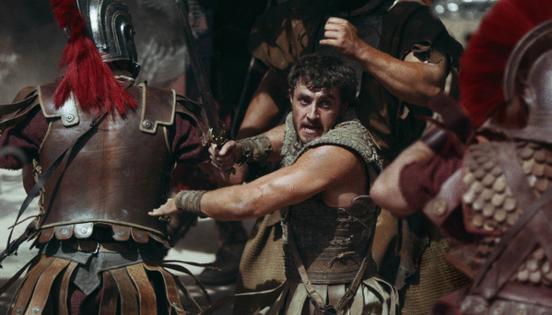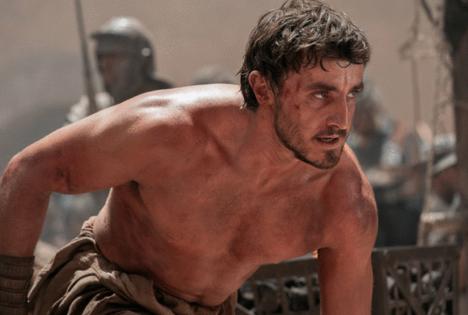Review: 'Gladiator II' or Roma Confidential.
The year 2000 was a very good one for Ridley Scott. The director's neo-swords-and-sandals epic "Gladiator," released in May of that year, went on to gross some $451 million at the worldwide box office -- real money in those days. And when the next batch of Oscars was handed out, "Gladiator," nominated for 12 of them, took home five, including Best Picture and Best Actor (for the movie's star, Russell Crowe, who played the soulful warrior Maximus). Scott didn't win Best Director, but he might have been too busy surfing the monster waves of money rolling in to bother taking notice.
For the last 24 years Scott has been talking up a "Gladiator" sequel -- a project that always seemed to be roadblocked by the fact that Crowe's centerpiece character had been rendered dead by the end of the first movie. Various writers were hired to finesse this inconvenient fact, some of them boldly advocating the possibility of reincarnation. But in the end the screenplay assignment went to David Scarpa, a scribe already well-known to Scott, who had previously hired him to write his 2023 film, "Napoleon" -- a movie that will never be spoken of in the same breath as "Gladiator."
I don't mean to suggest that "Gladiator II" is deficient in some major way. The dialogue can be uttered with a straight face, for the most part ("No more opium for you!" is a new classic), and the visual effects seem appropriately expensive (big tusky battle rhinos and snarling death baboons don't come cheap nowadays). What the movie lacks is a reason to be. It all feels so familiar -- the musclebound gladiators whaling away on each other with battle swords and whatnot, their bodies landing with a thud on the killing floor of the Colosseum. It feels like ... well, it feels like the last movie.
It also feels a little crowded. Attempting to explain the world depicted in this movie to a non-adept is a knotty undertaking. Should you begin with Marcus Aurelius, the Roman philosopher-emperor? He's at the center of things, if not actually present in the picture. Or maybe start with his daughter, Lucilla (Connie Nielsen, back from the first film), who is also the mother of a love child with the late Maximus, a lad called Lucius. Or maybe Marcus Acacius (Pedro Pascal), a Roman general and Lucilla's current husband, whom we see at the beginning of the movie leading an attack on the North African town in which Lucius now lives, in the process ... uh oh ... triggering the death of Lucius' wife.
The best thing in the movie, no contest, is Denzel Washington, who plays a wonderfully odious character called Macrinus, a onetime slave who now manages gladiators, traffics weapons, and plots incessantly to one day seize control of Rome -- possibly starting with its epicene boy emperors Geta (Joseph Quinn) and Caracalla (Fred Hechinger), who seem unlikely ever to kick their addiction to sultry eyeshadow. Washington has such a light, twinkly touch with comedy -- although that's not all he's up to here -- that you wonder why he isn't doing more of it. We see him at a slave auction weighing the gladiator potential of a white man who's up on the block. Passing brisk judgment, Macrinus calls out, "I'll buy him!" Perfect.
There are some scenes in this movie that are strange beyond the call of eccentricity. At one point, Scott whips up a full-on naval battle, complete with gliding shark patrols and gouts of human blood blossoming in the water. This nautical dustup is unlike any other I know of, since Scott has staged his inside the Colosseum. In a recent interview, the director said that this sort of enclosed spectacle was common back in those faraway days. Maybe. Still a tough sell up on an IMAX screen, though.
========
To find out more about Kurt Loder and read features by other Creators writers and cartoonists, visit the Creators website at www.creators.com.
Copyright 2024 Creators Syndicate, Inc.
















Comments